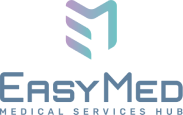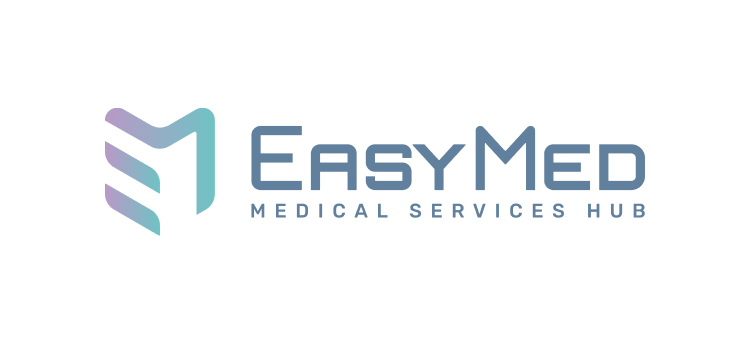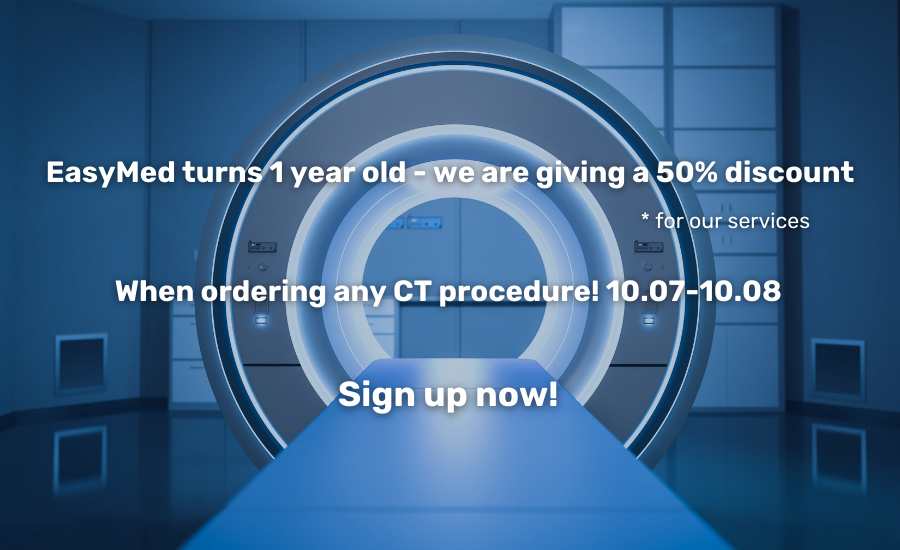
Computed tomography (CT)
Computed tomography (CT) is an advanced medical imaging technique that uses X-rays combined with computer technology to create detailed cross-sectional images of the body's internal structures. This technique produces more detailed and clear images than conventional X-rays, allowing doctors to assess and diagnose various diseases accurately.
Дополнительные процедуры:
- Лабораторный анализ мочи
- Элемент списка #2
- Элемент списка #3
CT with EasyMed
EasyMed plays a crucial role in speeding up the process of scheduling and performing CT scans. By cooperating with EasyMed, patients receive a prompt appointment for a CT scan in the best clinics in Israel. This is especially important when every hour can be crucial for diagnosis and treatment.
What does a CT scan show?
CT can effectively visualize almost all areas of the body, including bones, soft tissues, and blood vessels, providing valuable information in the following cases:
- Bone Assessment: Diagnosing fractures, bone tumors, and other skeletal diseases.
- Soft tissue examination: Detection of diseases and injuries of internal organs: lungs, liver, kidneys, heart, and others.
- Cancer diagnosis: Determining tumor presence, size, and spread.
- Assessment of vascular pathologies: Examination of aneurysms, thrombosis, and other vascular disorders.
- Detection of inflammatory processes: Diagnosis of abscesses and infectious processes.
- Surgical planning: Prepare for surgery by pinpointing the areas of intervention.
- Therapy monitoring: Evaluation of the effectiveness of treatment, including surgical or oncological treatment.
CT Scan Process
When visiting a clinic for a CT scan, the first step is registering and providing all necessary medical documents. This includes a referral from a doctor and any previous medical reports or test results that may be relevant to the procedure.
Procedure:
The CT procedure is quick, painless, and provides important diagnostic data that allows doctors to accurately determine the patient’s health condition and prescribe the appropriate treatment.
For a CT scan, the patient lies on a movable scanner table. Depending on the examined area, the patient may lie on their back, stomach, or side. Once the patient is positioned correctly, the table slowly moves into the CT machine. The machine rotates around the patient during the scan, creating X-ray images from different angles. The scanning process itself takes between 15 and 30 minutes, depending on the examined area and the type of scan. It is important to remain still during the procedure to obtain clear images.
Once the scan is complete, the patient can leave the clinic immediately, and the CT results will be ready within a few hours or days, depending on the clinic’s policy and the complexity of the data analysis.
Safety Computed tomography (CT) refers to radiation diagnostics, which uses X-rays to obtain images of the body’s internal structures. During a CT scan, the patient is exposed to ionizing radiation, which, although necessary to get detailed photos, carries certain risks.
The radiation dose in a CT scan depends on the volume of the examined area and may vary. For example, the quantity of a brain CT scan may be around 2 millisieverts (mSv), while a CT scan of the whole body can reach 10 mSv or more.
Effects on the body:
Although a single exposure to low doses of ionizing radiation is generally considered safe, frequent CT scans can increase the risk of cancer. The risk of radiation exposure is relatively low. Still, patients are advised to discuss the potential risks and benefits of the procedure with their healthcare provider.
The frequency of CT scans should be determined on the basis of medical necessity and strictly follow the ALARA (As Low As Reasonably Achievable) principle.
For most patients, a repeat CT scan is performed only when medically necessary and based on the doctor’s recommendations.
Patients with chronic diseases should record all CT scans to monitor the accumulated radiation dose.
CT scan with contrast medium
CT scan with a contrast agent improves the visualization of specific body structures. The contrast agent, often containing iodine, is injected intravenously, allowing for better differentiation of tissues, vessels, and organs.
This procedure is essential in diagnosing and evaluating tumors, inflammatory processes, blood vessels, and detecting pathologies in organs such as the liver, kidneys and spleen.
In which cases is a CT scan with a contrast medium recommended?
- Cancer: CT scans with contrast are often used to examine tumors in detail, including assessing their size, shape, and spread.
- Vascular examinations: Imaging vessels in the brain, abdomen, and other areas to detect aneurysms, blood clots, or other abnormalities.
- Inflammatory Diseases: Helps detect and assess the degree of inflammation in various organs.
Contrast Removal Time:
The contrast agent is usually eliminated from the body within 24 hours after the procedure. Patients are advised to increase their fluid intake after a CT scan to speed up this process.
Preparing for a CT scan
- Wear comfortable clothing without metal elements. You may be asked to change into your hospital gown.
- Remove all metal objects, including jewelry, watches, and belts, as these may affect image quality.
- Prepare and bring all relevant medical documents and results of previous examinations.
Preparation for a CT scan with contrast agent:
- Be sure to report any allergies, especially to iodine or contrast agents.
- Check your kidney function, especially if you have kidney disease, as the contrast is excreted through the renal system.
- You may be advised to abstain from eating and drinking for a few hours before your procedure.
- Talk to your doctor about taking medication before the test.
Important! Before making an appointment for a CT scan, the client will be additionally informed about all training issues by the EasyMed manager. This will help ensure that all the necessary precautions are followed and the client is fully prepared for the procedure.
Contraindications to CT scan
Относительные противопоказания:
Relative Contraindications: Do not permanently exclude the possibility of CT scanning, but it requires special attention and sometimes alternative approaches.
- Claustrophobia: The patient's inability to stay in the confined space of the scanner may require extraordinary measures.
- Pregnancy: Especially in the early stages, because of the risk of exposure of the fetus to ionizing radiation.
- Recent surgeries: Should be discussed with your doctor as additional precautions may be required.
- Hypersensitivity to ionizing radiation: Patients with medical conditions associated with hypersensitivity to radiation should be evaluated by a physician.
Absolute contraindications:
These factors may completely rule out MRI due to the high risks to the patient’s health or life:
- Presence of electronic implants: Pacemakers, cochlear implants, and other electronic devices can be damaged by ionizing radiation.
- Severe allergy to iodine-containing contrast agents: In the case of CT scans with contrast, a severe allergy to iodine may be a contraindication.
- Severe kidney disease: As contrast agents are excreted through the kidneys, severe kidney disease can worsen.
Importan! Before making an appointment for a CT scan through EasyMed, the client will be carefully informed about all contraindications and receive individual recommendations on how to prepare for the procedure. This will ensure the safety and comfort of the patient and increase the accuracy of the diagnosis.
EasyMed - Your Reliable Diagnostic Partner
We take responsibility for searching and organizing CT procedures in leading clinics in Israel and guarantee that each client receives high-quality medical care and suitable conditions. Our goal is to provide maximum comfort and safety for customers during the diagnostic examination process.
Advantages of cooperation with EasyMed:
- Time-saving: EasyMed eliminates the need for customers to search for a clinic on their own and wait in queues for a long time. We provide fast CT appointments within 24 hours.
- Individual approach: Our team considers each client's needs and preferences, selecting the best options for clinics and specialists.
- Full support: We accompany clients at all stages - from the initial consultation and application to receiving the procedure results.
- Professional support: Our specialists provide full information about the CT procedure, help prepare for the examination and advise on all issues.
Want to make an appointment for a review?
Fill in the following details
and we will contact you as soon as possible
Faq
Frequently asked Questions
We provide personalized healthcare services. Our main goal is to provide you with a quick appointment for the necessary medical examination or consultation with a doctor.
There is no need to wait several months: with us you will get to the right specialist in the shortest possible time.
Waiting times depend on the complexity of the procedure and the doctor’s profile. We can make an appointment with some specialists within 24 hours. For complex procedures, the waiting period of which reaches several months, you will be treated with us within 2-3 weeks.
There are a number of procedures (for example, complex types of MRI) that the patient can wait about a year and a half. We can reduce this period to 3 months.
We cooperate with leading specialists in various fields, as well as with top clinics and laboratories throughout Israel and abroad.
Our doctors use the latest treatment protocols and the most advanced technologies. The clinics we work with are equipped with modern equipment that provides the most accurate results.
Our partners are experienced professionals who have earned trust due to their experience, knowledge and professionalism.
We operate in all regions of Israel. Your appointment will be scheduled at the location most convenient for you.
The cost of services depends on the complexity of the procedure and the doctor’s profile. For accurate information and cost calculation, leave your details or call: 033083020
Yes, absolutely. Confidentiality and protection of our clients' personal information is one of our key priorities. We strictly adhere to all legal and ethical standards to ensure the maximum security of your data.
Our specialists will check whether in a particular case a refund from the insurance company is due. If yes, then after completing the procedure, a receipt will be sent to the insurance agent, who, in turn, makes a request to the insurance company to return the amount due to the patient for the procedure completed.




